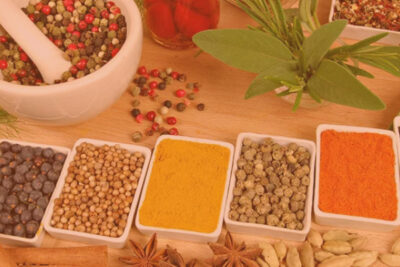
The Ideal Indian Diet for a Leaky Gut
Maintaining good gut health requires a balanced diet with macronutrients and micronutrients, as well as avoiding harmful foods. Chronic inflammation, type 2 diabetes, heart disease, and cancer are linked to gut dysbiosis and a leaky gut, making it crucial to consume the right foods.
Foods that can improve gut health
- Fruits like bananas, grapes, strawberries, raspberries, blueberries, papaya, coconut, lemons, oranges, kiwi, mandarin, passionfruit, and pineapples.
- Vegetables, tubers, and roots like broccoli, brinjal, Brussels sprouts, carrots, spinach, kale, beetroots, mushrooms, ginger, squash, yams, turnips, and potatoes.
- Gluten-free grains such as brown rice, gluten-free oats, and amaranth.
- Sprouted seeds such as flax, sunflower, and chia.
- Fatty fish rich in omega-3 such as tuna, herring, and salmon.
- Healthy fats such as coconut, almond oil, extra-virgin olive oil, and avocado.
- Spices and herbs
- Eggs and meats. Lean cuts of beef, chicken, turkey, lamb
- Beverages and soups such as teas, nut-based milk products, and coconut milk.
- Cultured dairy products such as Greek yogurt and buttermilk
- Raw nuts such as almonds and peanuts.
Foods to avoid for a healthy gut
- Gluten-rich grains such as oats and barley
- Wheat-based products such as pasta, bread, pasta, couscous, and wheat flour
- Bakery products such as cakes, cookies, and pastries
- Cold cuts and processed meats
- Fast food or junk food
- Snacks such as granola bars and crackers
- Artificial sweeteners
- Dairy products such as ice cream, cheese, and milk
- Refined oil
- Carbonated drinks and alcohol
- Dressings and sauces with hoisin, soy, or teriyaki
Indian meal options for the gut
A plant-based diet containing fruits, vegetables, whole grains, and legumes can heal the damaged gut lining. Home treatments like aloe vera, ginger, and turmeric can also reduce stomach irritation.
Kadhi: Besan kadhi is a high-nutrient, gut-healthy food rich in magnesium and fiber, both of which are vital for gut health. It is a popular home remedy for menstruation cramps, constipation, and weight loss. Moong dal kadhi is another healthy option, also known for its gut health benefits.
Rasam: Rasam's constituents, such as dal, tamarind, herbs, and spices, are high in vitamins A, C, magnesium, iron, and calcium, which are beneficial to your digestive system. Rasam also includes fibers, which help with bowel transit and make it simpler to evacuate your stool.
Bitter gourd (Karele ki sabzi): If prepared properly, karele ki sabzi is a wonderful dish rich in fiber and nutrients that can help with constipation and indigestion. It is an excellent immune enhancer.
Fenugreek (Methi ki sabzi): Fenugreek is vital for weight loss, constipation, and other gut-related disorders. Because methi's fiber takes a long time to disintegrate, our intestines have plenty of time to absorb the nutrients.
Khichdi:
Khichdi, a dish made from ghee and dal, is a nutritious meal recommended for its restorative fats and fiber, which balance the high glycemic load of rice. It is beneficial for intestinal health, treating constipation, diarrhea, and vomiting, and increasing its nutritional richness with vegetables.
Dhokla:
Dhokla, a traditional Indian food, is known for its ability to improve bowel movements, boost energy, and maintain intestinal flora balance. Its texture and flavor make it easier for elderly and children to swallow and aid in digestion.
Idli:
Idlis, a South Indian meal, is known for its gut health benefits and is a healthy breakfast option due to its low-calorie content and high intestinal flora content. Its probiotic effects are enhanced with fermented food chutney, making it suitable for both children and adults.
Curd rice:
Curd rice is a potent home remedy for digestive disorders, particularly dyspepsia, due to its high bacteria content. It aids in weight reduction and digestion, while white rice absorbs the curd flavors without compromising nutritional value. Curd rice also promotes a healthy microbial balance in the body.
Buttermilk:
Buttermilk, a byproduct of cream churning, is traditionally described as chhaas in Indian families. It contains probiotics, which are crucial for gut health and digestion. Studies suggest that probiotic meals or beverages may help manage irritable bowel syndrome, as they are often found in homemade buttermilk.
Murabba Amla:
Amla aids digestion and breaks down food into smaller particles, as well as enhanced nutritional absorption from meals. Because of its high fiber content, this murabba is great for digestive and gastrointestinal disorders including constipation and gastritis.
Indian Spices
Indian spices like cumin, coriander, fennel, and cardamom offer digestive benefits like treating indigestion, reducing stomach inflammation, and providing pain relief. Turmeric, a potent anti-inflammatory spice, can lower inflammation and promote intestinal lining repair, balancing beneficial bacteria. Ginger, a versatile spice used in Indian cooking, can alleviate intestinal irritation, increase digestive enzyme synthesis, and maintain a healthy gut microbiota, making it a beneficial addition to a healthy diet.
Final thoughts
A healthy gut diet is essential for treating leaky gut syndrome symptoms, which occur when intestinal walls loosen, allowing harmful substances like bacteria and toxins to enter the bloodstream. This can be caused by long-term NSAID use and gut dysbiosis. A gut diet should include fibrous vegetables, fruits, fermented vegetables, cultured dairy products, healthy fats, and lean meats. Avoiding processed junk foods, alcohol, sugary beverages, refined oils, and artificial sweeteners can help grow healthy gut bacteria. A plant-based diet can improve gut health by making it easier for the body to digest and assimilate.
